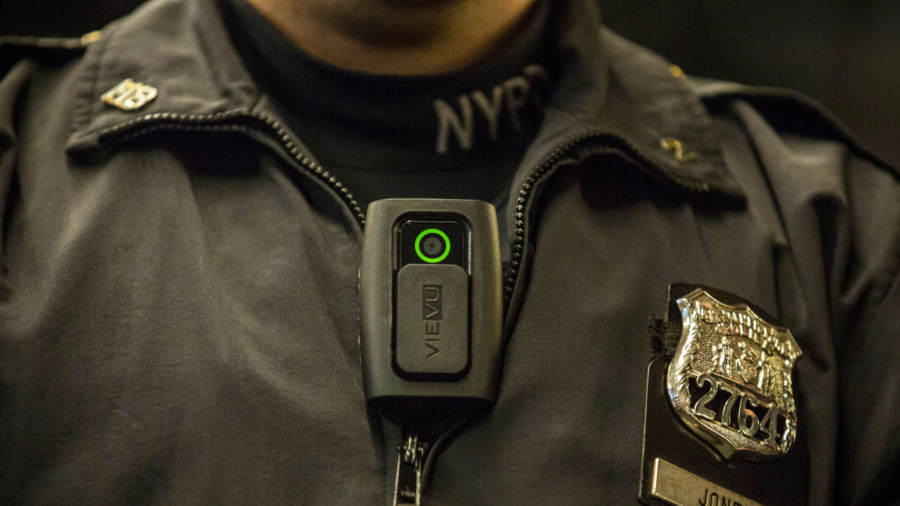The National Police Association (NPA) on Thursday said that it welcomes the “transparency” of the Department of Justice‘s move to require its federal officers to wear and activate body cameras while carrying out pre-planned search and arrest warrants.
Sgt. Betsy Brantner Smith, a spokesperson for the NPA and current law enforcement trainer, told The Epoch Times that the non-profit organization believes the new requirement will both improve the safety of federal agents through the review of footage, and lead to a greater confidence in federal law enforcement in general.
“Many federal agents, especially when working with local police agencies on multi-agency task force initiatives, get involved in incredibly dangerous situations and the American public should be able to see firsthand the risks these brave police officers take,” Brantner Smith, a 29-year police veteran, said in an emailed statement.
Brantner Smith cited the Feb. 2 deaths of FBI Special Agents Laura Schwartzenberger and Daniel Alfin in Sunrise, Florida, as instances where review of body worn camera footage could have been utilized to improve the federal agent safety. The pair were killed in the line of duty while serving a federal search warrant in a crimes against children investigation.
“Federal law enforcement leadership, including and perhaps especially the Department of Justice, should be role models for sound policy concerning the use and the release of BWC footage,” Brantner Smith said. “Federal law enforcement has the opportunity to lead the way in the swift release of BWC footage in all federal police use of force cases.”
The NPA spokesperson also suggested that had body worn cameras been in use during the Jan. 6 breach of the U.S. Capitol building, “there would certainly be more clarity about the death of Ashli Babbitt, leading to a greater confidence in federal law enforcement in general.”

Babbitt, an unarmed Air Force veteran, was fatally shot by a U.S. Capitol Police officer when she reportedly tried to climb through a broken window into the Speaker’s Lobby, adjacent to the House chamber.
The DOJ’s requirement marks a shift from a long-standing policy that barred federal agents from wearing body cameras. Deputy Attorney General Lisa Monaco said in a memo (pdf) that the policy decision was “based on recommendations from the Department’s law enforcement components.”
Previously in October 2020, the DOJ under the Trump administration announced it would allow but not mandate state and local law enforcement officers on federal task forces to wear body-worn cameras. The policy still prohibited the cameras from being activated in multiple scenarios, including in sensitive investigations, and federal agents were still blocked from wearing body cameras.
Before then, state and local police were required to turn off their cameras while working on federal task forces.
The call for law enforcement officers to wear and activate body cameras has intensified in recent months, particularly after the police officer-involved deaths of George Floyd and Breonna Taylor.
The American Civil Liberties Union (ACLU) however, argues that while police body cameras have the potential to serve as a police oversight tool to reduce any cases of abuse by officers and increase community trust in the police forces as a whole, they must be deployed with good policies to ensure they accomplish those goals.
“Without good policies, they risk becoming just another police surveillance device—and one with very real potential to invade privacy,” the ACLU says. “Especially important are policies governing when the cameras are turned on, and who has access to the footage and under what conditions.”
Monaco has directed the Bureau of Alcohol, Tobacco, Firearms & Explosives; the Drug Enforcement Administration; the FBI; and the U.S. Marshals Service; to submit for review policies regarding body cameras for their respective agencies within 30 days from June 7.
Mimi Nguyen Ly contributed to this report.
From The Epoch Times


